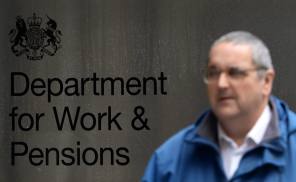

In a debate last night (5 July), the Lords tackled the two-topic Financial Guidance and Claims Bill which proposes replacing the Money Advice Service, the Pensions Advisory Service and the Department for Work & Pensions’ Pension Wise service with a single guidance body and making the Financial Conduct Authority responsible for regulating the claims management industry.
During the debate, FTAdviser’s news report on how Mr Gauke twice labelled the new guidance service an ‘advice body’ was raised.
Liberal Democrat Lord Sharkey said there was a clear need for complete clarity over what is guidance and what is advice, plus a statement of what is being offered in what circumstances.
Lord Sharkey: “It is very easy to confuse the two and thereby accidentally to mislead. Even secretaries of state get this wrong.
“The FT(Adviser) reports that, when David Gauke, a former regulatory lawyer, addressed the Association of British Insurers conference, he twice confused guidance and advice and called the new guidance body an “advice body”.
“If the secretary of state can make that confusion, how easy it is for lots of other people to make the same mistake?”
Baroness Ros Altmann, former pensions minister, said she was concerned the wording of the Bill would unhelpfully prolong a major misconception in personal finance that has permeated the industry for years but could at last be addressed.
She said: “I am talking about the use of the word ‘advice’. For far too long there has been a public perception that this thing called ‘financial advice’ is free. In the past, of course, it often was apparently free because so-called advisers were being remunerated by a financial company for selling its products. They were not really advisers; they were salesmen.
“This commission-driven culture caused many scandals, and it incentivised behaviour that was not in the customers’ best interests. Rightly, the regulator has tried to clamp down on such practices. It now insists on a stark differentiation between what can be called ‘advice’ in personal financial services and what is merely guidance, information or sales. This is not a minor technical point; it is a fundamental issue. Indeed, we need a proper definition of what constitutes guidance, which I do not believe we yet have.
“There has been much misuse of the word ‘advice’ for so long, even at the top of government. When (then) chancellor George Osborne announced the pension freedoms, he said the government would also ensure that members of the public would have access to free impartial advice. What he meant, and what was introduced, was free guidance, not advice.
“Indeed, the helpful briefing from the House of Lords for today’s debate talks about merging three existing advice channels into a single body, yet those three bodies do not give advice even though their names misleadingly suggest that they do. The Money Advice Service and the Pensions Advisory Service do not actually give financial advice.
“Unfortunately, the Bill prolongs the problem. If the debt piece is called advice, then it has to take account of the pension piece, and once it is doing that, the pension element will have to be advice too, not just guidance.
"I ask my noble friend the minister to consider amending the word used by the single financial guidance body and the FCA so that it is debt guidance, not debt advice. We could use other words, such as debt resolution, counselling or help, but guidance seems to make sense.”
In response, parliamentary under-secretary of state for the Department for Work & Pensions Baroness Buscombe said she was very conscious of the concerns expressed about the difference between advice and guidance.
She said: “It may help if I briefly outline where we see the distinction. Debt advice is a regulated activity. It is provided by an FCA-approved debt adviser who provides an assessment of an individual’s debt situation and makes a recommendation on a course of action.
“The government currently fund free-to-client debt advice through the Money Advice Service. The key point here is that debt advice comes with a personal recommendation and action plan and is a regulated activity, so it is tailored to an individual’s needs.
"Financial guidance is the provision of more generic information about the various options open to an individual.
“No personal recommendation is provided, it is not regulated and it is not tied to selling a product as a result of the information provided. It is important that we understand that distinction as we go on to debate the Bill in more detail.”
The measures in the Bill outline four functions for the new guidance body.
Firstly, it will provide information and guidance on all matters relating to private pensions, covering both the basics as well as the more complicated issues.
That will include matters such as pension schemes and how they work; general information about the state pension; transfers between a defined benefit scheme and a defined contribution scheme; and the options open to people as a result of the pension freedoms.
Secondly, it will provide impartial guidance and information on money matters, including budgeting and saving, insurance, bank accounts, protection from fraud and scams, and planning for retirement.
Thirdly, a further function of the body will be to fund free-to-client debt advice for people in England with problem debt.
The fourth function requires the body to work closely with others in the financial industry, the devolved authorities and the public and voluntary sectors.
Conservative Lord Holmes of Richmond said he was disappointed the bill failed to explain how much the industry would have to cough up for the new guidance body.
Back in April, advisers were told they faced a 4.7 per cent increase in their regulatory fees for 2017 to 2018.
The regulator wanted advisers in the A13 fee block to pay £77.1m to cover the costs of the FCA, Financial Ombudsman Service and guidance services in 2017 to 2018, compared with £73.7m in 2016 to 2017.
The total budget for the government’s other guidance scheme, the Money Advice Service, was £75m, which was the same as last year.
The Department for Work and Pensions stated the 2017 to 2018 funding requirement for providing Pension Wise would be £16.2m.
Lord Holmes said: “I want to talk about funding. Jessie J is not entirely correct that it is not about the money. Often, it is absolutely about the money.
“The Bill says very little about the funding of this organisation. That will be critical for the impact it is able to have.”
In the regulator’s 48-page Financial Advice Market Review Baseline report, published last month, the FCA stated of those aged over 55 plus and planning to retire in the next two years, less than half (44 per cent) had used at least one form of guidance or information.
However the FCA revealed only 10 per cent had used The Pension Advisory Service (TPAS) and only 7 per cent used Pension Wise.
emma.hughes@ft.com



